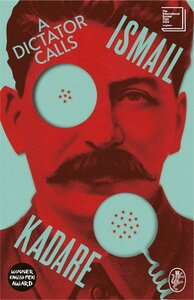At the centre of A Dictator Calls is an examination of a short phone call made on 23 June 1934 by Stalin to Boris Pasternak. The subject of the call was the recent arrest of Pasternak’s fellow poet, Osip Mandelstam. But its precise details are uncertain, because there are multiple accounts of the call, ranging from the official record to second-hand accounts by people of varying proximity to Pasternak.
Kadare goes through each version of the call, drawing out the differences and varying interpretations. There’s no single definitive account of exactly what Stalin asked Pasternak, or how Pasternak replied, or even why the call took place. Different versions put different slants on these things, and the ultimate impression is one of no stable reality – which, the book suggests, reflects the nature of living and writing in a totalitarian state.
Alongside his exploration of the Stalin-Pasternak call, Kadare gives an account of his own experiences as an Albanian writer. This puts into context his interest in the Stalin-Pasternak call, as well as setting up a counterpoint that runs through the tapestry of the novel.
Published by Harvill Secker.
Click here to read my other posts on the 2024 International Booker Prize.




Recent Comments